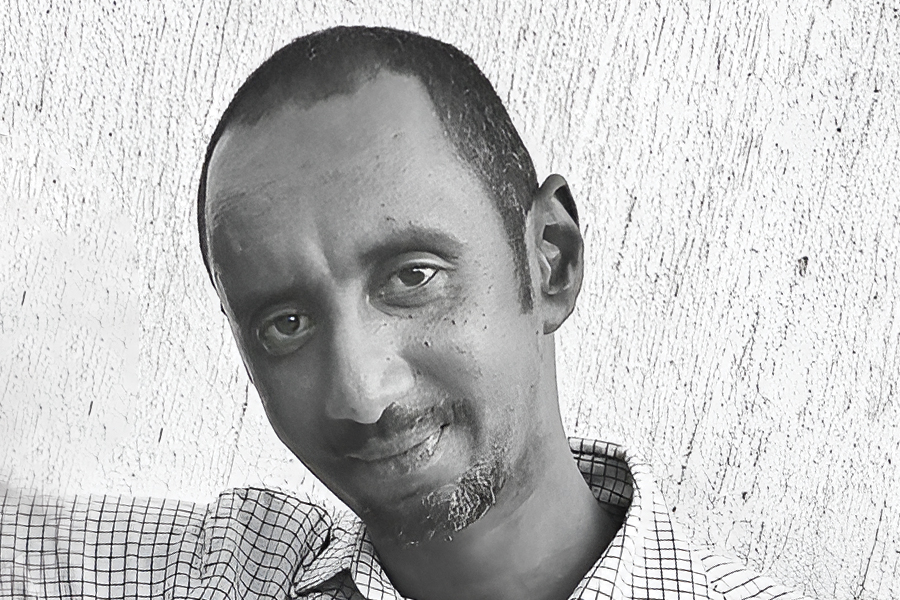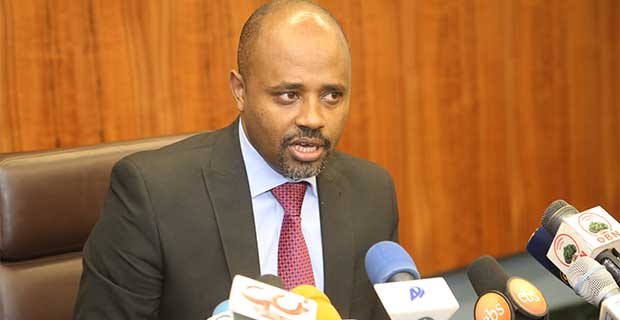
View From Arada | Nov 23,2019
Eyob Tekalegn (PhD) assumed the governorship of the National Bank of Ethiopia (NBE) last week with a pledge to overhaul the Central Bank into “a regulatory body fit for purpose in a modern economy.” His appointment, which follows a brief leadership vacuum after the exit of Mamo Mihretu, comes at a time when macroeconomic foundations remain in flux, challenged by persistent inflation, currency volatility, and a fraught external debt landscape.
In an interview with local media, Eyob projected a cautiously optimistic tone, aware of the headwinds facing the policy reform agenda he helped shape in his prior role as State Minister of Finance.
“There are areas where corrective measures are long overdue,” he said, identifying the tax administration system as a critical fault line.
Eyob’s remarks underline the policy continuity threading through Prime Minister Abiy Ahmed’s (PhD) economic team, of which he has been a long-standing member. However, they also mark a subtle shift towards technocratic recalibration of monetary institutions amid deepening structural strains. His comments carried an air of guarded realism.
“People with ill intentions are not staying quiet,” he stated, alluding to entrenched interests resisting reforms.
As federal authorities attempt to expand the fiscal base, tax enforcement and compliance remain politically sensitive but economically pressing. Eyob's tenure is expected to sharpen coordination between monetary and fiscal levers as the federal government faces mounting obligations in debt restructuring talks under the G20 Common Framework. Among the initiatives he spoke about was the push for import substitution in heavy industries, particularly in the iron and steel sector. Projects under this agenda, he claimed, could yield up to five billion dollars in foreign exchange savings over the next five years.
With over two decades of experience straddling public finance, diplomacy, and multilateral institutions, Eyob arrives at the helm with a resume that bridges bureaucratic depth and policy vision. He holds a doctoral degree in political economy from the University of Maryland and a postgraduate degree from George Washington University. His board memberships at Ethiopian Investment Holdings (EIH), Ethio telecom, and Ethiopian Electric Power (EEP) further demonstrated his strategic access to the commanding heights of the national economy.
Observers interpret his elevation as a bid to tighten the feedback loop between monetary policy and fiscal operations. Ethiopia is in the throes of complex negotiations to restructure external obligations after defaulting on a one billion dollar Eurobond repayment in December 2024. Inflation, though easing, remains elevated, and the Birr continues to depreciate in official and parallel markets alike. Observers say the task ahead is beyond technocratic measures but deeply political. To succeed, Eyob will need to manage the optics of unpopular reforms and stabilise monetary expectations in an uncertain macroeconomic climate.
PUBLISHED ON
Sep 21,2025 [ VOL
26 , NO
1325]

View From Arada | Nov 23,2019

Agenda | Aug 25,2024

Commentaries | Oct 26,2019

Addis Fortune | Aug 09,2025

Radar | Jun 15,2019

Fortune News | Jun 19,2021

Viewpoints | Oct 14,2023

Obituary | Nov 09,2024

Fortune News | Feb 08,2020

Radar | Oct 31,2020

Dec 22 , 2024 . By TIZITA SHEWAFERAW
Charged with transforming colossal state-owned enterprises into modern and competitiv...

Aug 18 , 2024 . By AKSAH ITALO
Although predictable Yonas Zerihun's job in the ride-hailing service is not immune to...

Jul 28 , 2024 . By TIZITA SHEWAFERAW
Unhabitual, perhaps too many, Samuel Gebreyohannes, 38, used to occasionally enjoy a couple of beers at breakfast. However, he recently swit...

Jul 13 , 2024 . By AKSAH ITALO
Investors who rely on tractors, trucks, and field vehicles for commuting, transporting commodities, and f...

Nov 1 , 2025
The National Bank of Ethiopia (NBE) issued a statement two weeks ago that appeared to...

Oct 25 , 2025
The regulatory machinery is on overdrive. In only two years, no fewer than 35 new pro...

Oct 18 , 2025
The political establishment, notably the ruling party and its top brass, has become p...

Oct 11 , 2025
Ladislas Farago, a roving Associated Press (AP) correspondent, arrived in Ethiopia in...